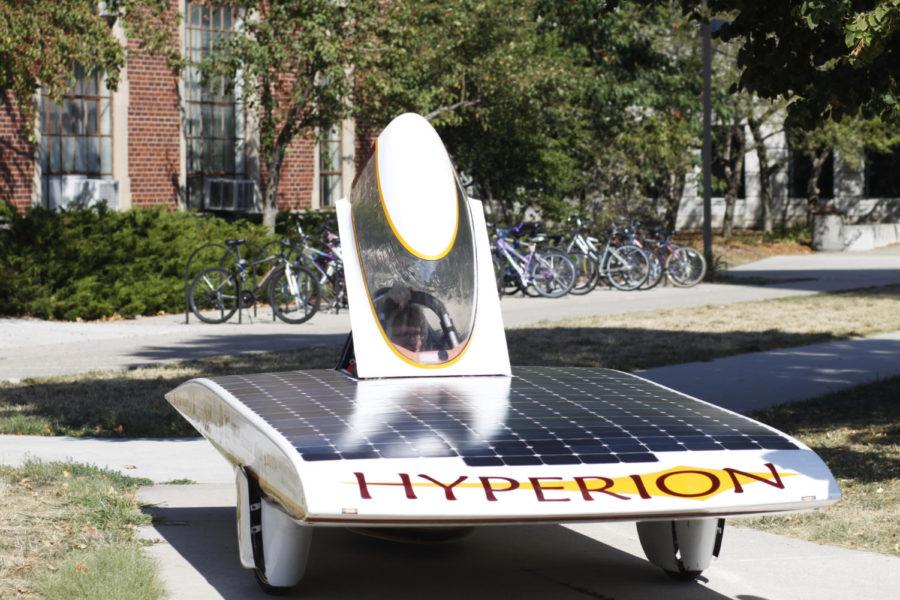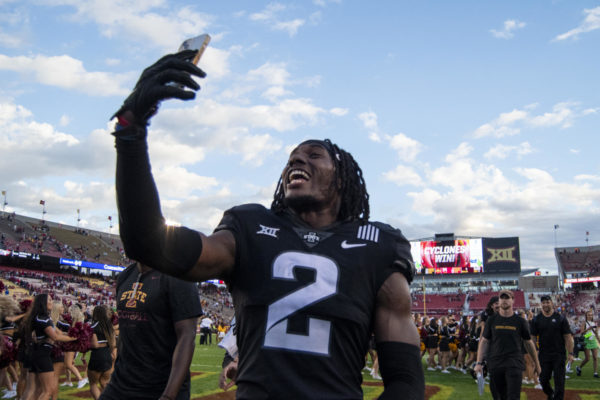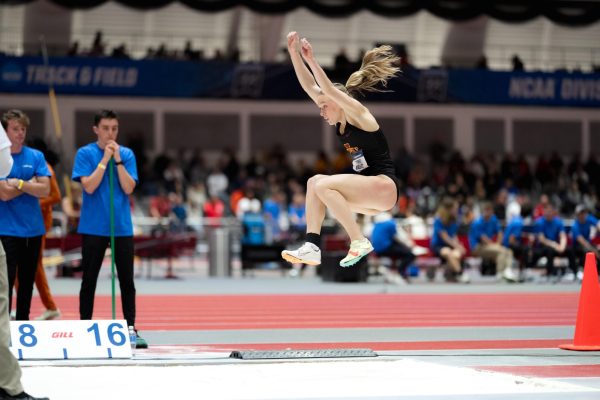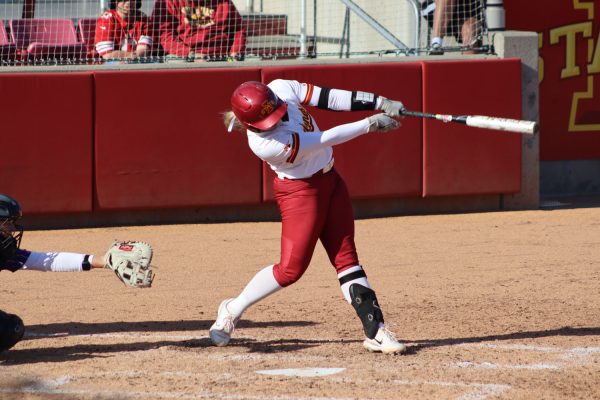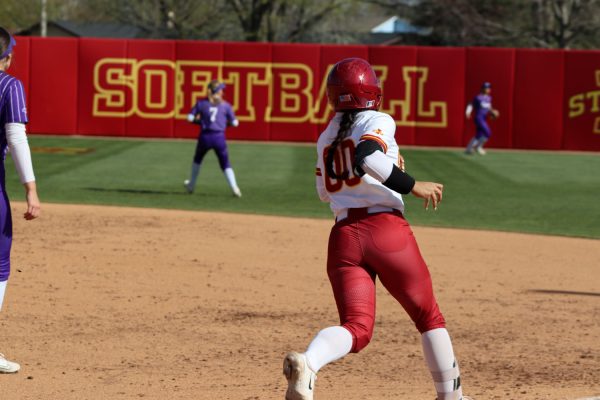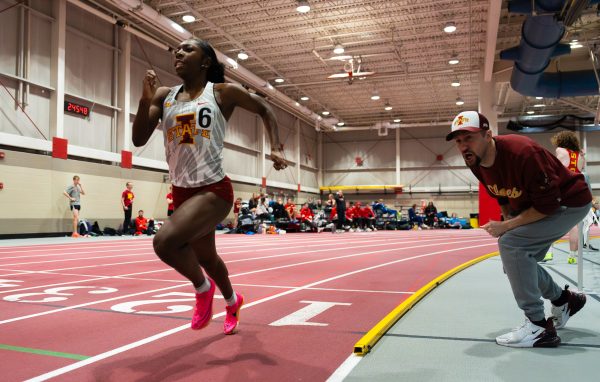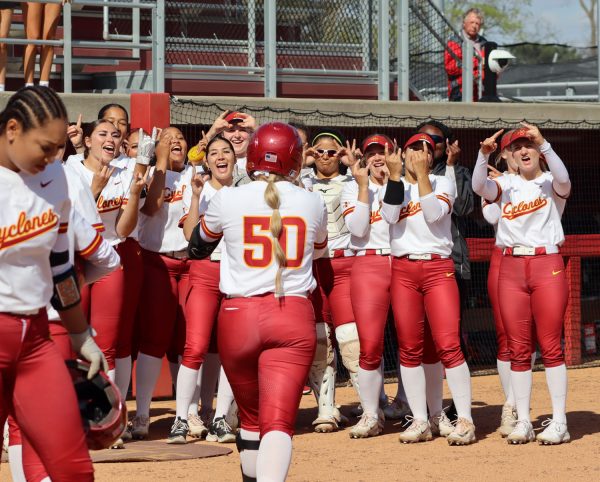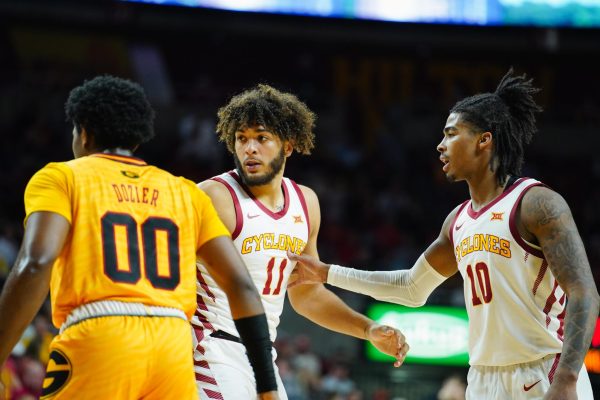Team PrISUm to begin construction on new solar car
Nur Surya Abu/Iowa State Daily
Team PrISUm is a student-run organization at Iowa State which designs, builds and races solar powered electric vehicles. P11, named Hyperion, won third place in last summer’s Formula Sun Grand Prix.
September 11, 2013
Team PrISUm is back at it. Construction of the ISU Solar Car team’s 12th car, nicknamed Phaeton, will begin this fall.
After spending last year working on the design of the new vehicle, PrISUm is ready to bring Phaeton to life.
“After a year of designing and a year of building, we get to go race our solar car, and really see our design come to life, which is cool,” said Jonathan Bauer, senior in mechanical engineering and PrISUm’s assistant electrical director.
Typically, the first year is spent planning out the design of the vehicle, and the second year is spent constructing the solar car and making any necessary design changes.
The team is preparing the car for the American Solar Challenge, a 1,200 to 1,800-mile cross-country road race.
The challenge’s website says the details of this year’s race have not yet been released, but this typically happens sometime in June or July. The team is currently putting the finishing touches on Phaeton’s design and will begin construction soon after that.
Often times during construction difficulties arise that force the team to go back to the drawing board and rework their design. All the struggles are worth it though, Bauer said.
“The American Solar Challenge is held every two years, and its a cross-country race, as opposed to the Formula Sun Grand Prix which is held on a race track every year,” said Todd Wegter, the electrical team leader for PrISUm.
PrISUm’s previous solar car, Hyperion, finished in third place at the Formula Sun Grand Prix last summer at the Circuit of the Americas in Austin, Texas. The team finished just two laps behind the winning team from Oregon State.
Along with the third place finish, PrISUm brought home numerous awards including fastest lap and fastest egress by Cory Anderson, and fastest slalom by Moriah Morgan. Coming off its successful performance last summer, the team has even higher goals for the challenge this summer.
“Obviously, the goal is to win it,” Bauer said. “The University of Michigan is always very competitive, and they have a much larger budget than us, so to knock them off and prove that it comes down to more than just who has the biggest budget would be really cool.”
PrISUm builds a new solar car every three years, which generally creates a lot of turnover within the club. However, this year many of the members bring back considerable knowledge from their previous experiences from working on Hyperion.
“We definitely learned a lot from Hyperion, a lot of members stuck around to be a part of Phaeton and we can use what we have learned to improve the new vehicle,” Bauer said.
PrISUm was founded in 1989, then known as the ISU Solar Car Project, and has been racing solar cars in competitions since 1990.
The organization began as a project within the College of Engineering, until 1995, when the club changed its name to PrISUm and was opened up to students of any major.
The purpose of PrISUm, besides being a practical application for engineering and business majors, is to emphasize the potential power of solar energy and to help educate the masses on the capabilities of solar energy.
PrISUm is further broken down into three smaller teams: mechanical, electrical and a business team.
The business team is vital, as building a solar car requires a lot of funding and sponsorship. The team is always looking for business majors to help out with that aspect of the project, as well as any other majors who are interested in being a part of PrISUm.
“We are having a new members meeting Monday, Sept. 8, at 6 p.m. in Hoover 2055, for anybody interested in helping out in any way,” said Logan Scott, member of the electrical team.

